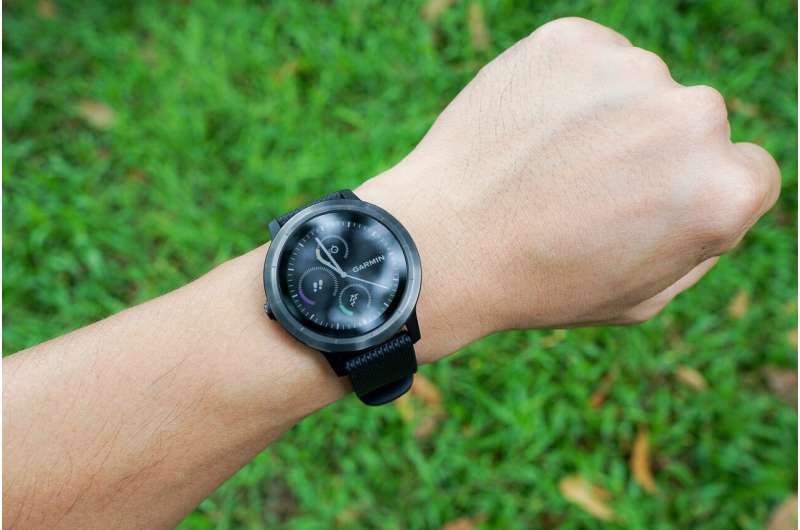This article has been reviewed according to Science X's editorial process and policies. Editors have highlighted the following attributes while ensuring the content's credibility:
fact-checked
peer-reviewed publication
trusted source
proofread
Are fitness watches motivating users to stick to fitness goals? Here's what the research says

For many years, wearable fitness trackers, also called activity trackers or fitness watches, have ranked among the hottest holiday gifts. And as the new year arrives, consumers make resolutions to get fit by using the devices made by Fitbit, Apple, Garmin and other brands to monitor movements, log workouts, count calories burned, and more.
First-generation fitness trackers worked as pedometers, counting the number of steps taken. Today's increasingly sophisticated tools track many forms of exercise, including running, biking, rowing and swimming. They also measure blood oxygen levels, sleep patterns, caloric intake and other health-related data points.
Companies market these products as all-in-one tech devices that connect users with apps and products needed to establish or maintain an exercise regimen, including music, maps and schedule reminders. Many medical experts support wearable activity trackers to help users maintain regular exercise routines and achieve fitness goals.
However, many people may find themselves annoyed or demotivated when their fitness watch tells them to stand up after sitting too long or notifies them that they haven't burned many calories by a certain time of day. Research conducted by Lane Fronczek, an assistant professor of marketing with Georgia State University's J. Mack Robinson College of Business, shows there may be a reason for those negative feelings.
A 2022 paper coauthored by Fronczek in the Journal of the Academy of Marketing Science, "Friend or foe? Can anthropomorphizing self-tracking devices backfire on marketers and consumers?," demonstrated that although consumers are initially drawn to wearable trackers marketed with human-like qualities with some referring to the device as a "fitness coach," they experience a drop in enthusiasm and activity over time.
Another study published in 2016 in the Journal of the American Medical Association (JAMA) compared two groups of overweight adults who ate the same low-calorie diet, followed the same exercise routines, and received the same support for two years.
One group wore activity trackers, and the other manually logged their data onto a website. There was no significant difference in weight loss between the groups at six months, but at 12, 18 and 24 months, the participants logging their activity online lost statistically significant more weight than those who wore the devices.
Researchers did not state a clear explanation for the results but theorized the activity-tracker group focused more on the technology support than the actual exercise behaviors.
Fronczek's research may shed some light on why some users lose motivation over time. Her team found that devices described as a "personal fitness coach" or "fitness pal" can decrease the users' sense of autonomy. This makes consumers feel the technology, not the user, is getting credit for behaviors and reaching goals. As a result, people lose their desire to engage in health-related behaviors, leading to a decline in daily steps and exercise.
To combat this phenomenon, Fronczek recommends that users customize the settings on their devices and set their own exercise goals instead of simply doing what the tracker tells them. Increasing agency over the activities and successes can help users maintain their enthusiasm and prevent the drop off in excitement they found.
Fronczek also reiterated that users should use wearable activity trackers as a support tool and to avoid depending on them to manage or monitor every aspect of their lives.
Understanding how consumers use this technology is essential because the devices continue to evolve and play more significant roles in our daily lives. Economists valued the wearable activity tracker market at $138 billion in 2022 and expect it to pass $491 billion by 2032.
"There is a way for companies to get the best of both worlds," Fronczek said. "They can market the devices as a coach initially and then encourage customers through push notifications or emails to customize settings to increase autonomy and sense that they are in charge of their own actions."





















